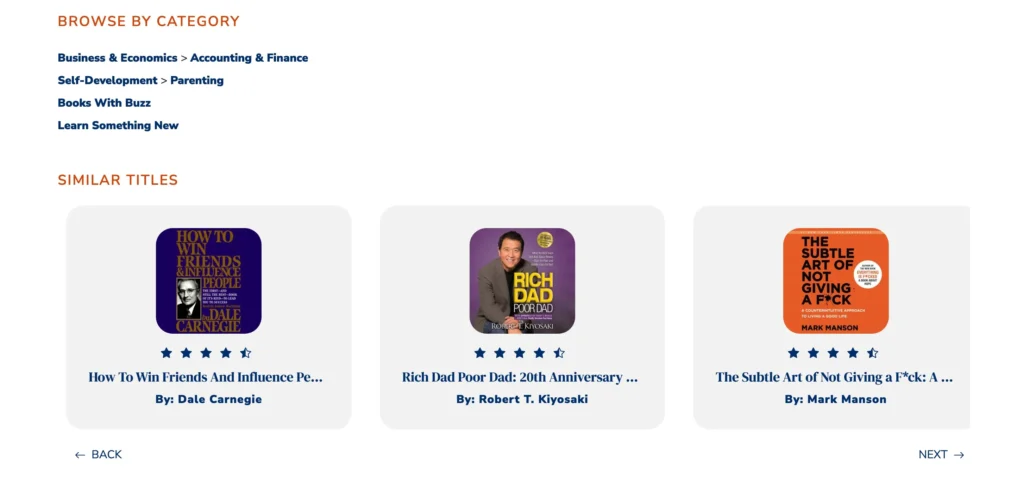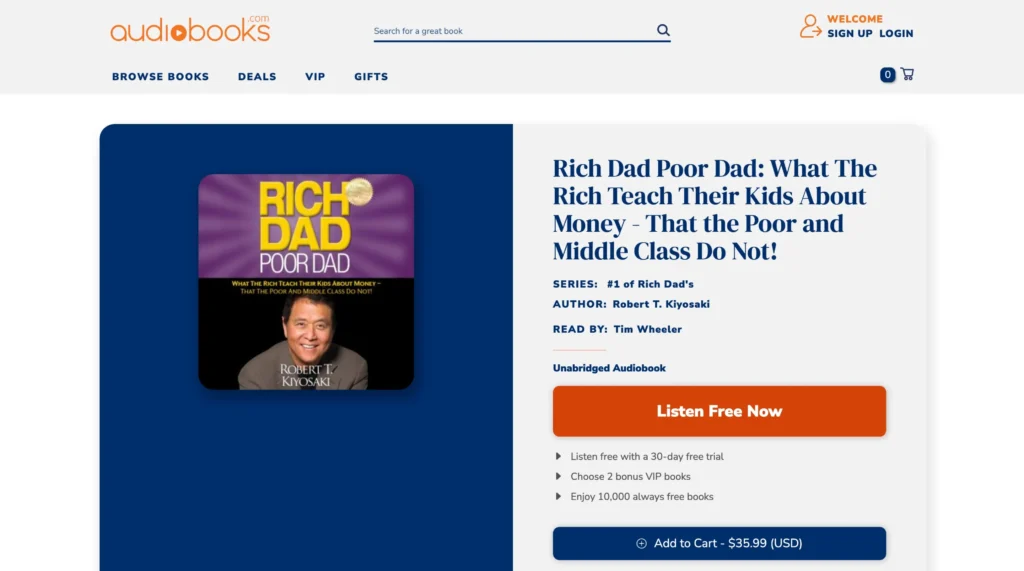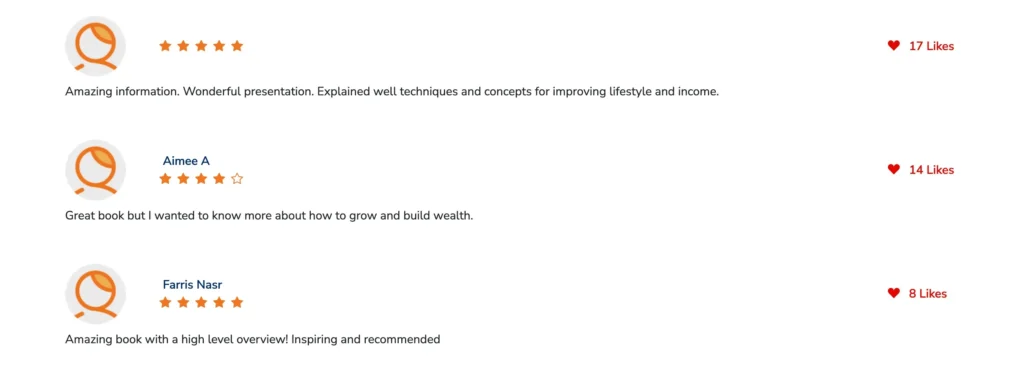People all over the world are finding it difficult to manage their finances due to a lack of knowledge.
In his book, Robert Kiyosaki shares his experience of learning about finance from two dads – his father and his best friend’s father.
Despite being highly educated, Kiyosaki’s real father was not financially stable and had to drop out of school after eighth grade.
However, he became a millionaire by applying the financial knowledge he gained from the second dad. This book’s teachings have helped many people manage their personal finances better, and it has become a bestseller.
I will provide you with more details about the lessons taught by Kiyosaki in Rich dad Poor dad.
Key Lessons from Rich Dad Poor Dad

1. Money and Work Mindsets
Kiyosaki begins by discussing his early life as a poor child attending a school with wealthy students. This experience exposed him to the financial divide between the classes, a theme that runs throughout the book.
A pivotal moment occurs when Kiyosaki, influenced by his rich dad, begins to understand that working for money is not the key to wealth.
Instead, he learns that the wealthy make money work for them. This lesson is summed up in the advice that “the middle class works for money while the rich make money work for them.” It’s a core principle that shapes Kiyosaki’s financial philosophy.
2. The Importance of Risk and Entrepreneurship
A major turning point in the book is when Robert and his friend Mike decide to embark on an entrepreneurial venture.
Although their initial plan to extract nickels from lead fails, they learn invaluable lessons about taking risks and thinking outside the box.
Kiyosaki stresses that taking calculated risks, stepping outside your comfort zone, and relying on knowledge rather than a fixed salary are essential steps toward financial freedom.
Wealthy individuals understand the importance of leveraging their money and knowledge to create more opportunities, unlike those who rely on a paycheck.
3. The Concept of Financial Education
One of the most powerful lessons in Rich Dad Poor Dad is the importance of financial literacy. Kiyosaki criticizes the traditional education system for failing to teach financial independence or money management.
He believes that understanding how money works—through taxes, investments, and financial markets—is crucial to achieving long-term wealth.
This was evident when Kiyosaki learned about taxes at just nine years old—a stark contrast to the conventional wisdom espoused by his “poor dad.”
4. Employee Mentality vs. Entrepreneurial Mindset
A standout moment in the book is when Kiyosaki’s rich dad teaches him that employees are often driven by fear—fear of losing their job, fear of not having enough money, or fear of the future.
This fear limits their ability to think creatively and take risks. In contrast, entrepreneurs are fueled by passion, curiosity, and a willingness to make mistakes and learn from them.
They view money as a tool to create opportunities, not as a goal to be chased. This mentality is crucial for anyone seeking to break free from the cycle of working for money.
5. Lessons from Failure
Kiyosaki also emphasizes that failure is a natural part of the learning process.
When he and Mike started a comic book library that eventually failed, they learned that failure isn’t the end, but rather a stepping stone toward success.
The important lesson was that by taking initiative and acting on their ideas, they learned what didn’t work, which is just as valuable as learning what does.
Mind Your Own Business:
In this section of the book, the author clarifies the distinction between a profession and a business. For instance, if you work as an accountant, you are an employee of a company, and you do not own it.
If you wish to improve your financial situation, you need to put in more effort than simply working for someone else. To achieve this, you should focus not only on increasing your income but also on building your assets.
Robert Kiyosaki, the author of the best-selling book Rich Dad Poor Dad, suggests that investing in real estate is one of the best ways to create wealth.
This is because real estate is an asset that doesn’t require constant management like other investments. Once you buy a property, you can just leave it and let it appreciate over time.
However, if you decide to sell your home, it’s important to work with a reputable company that will provide you with a competitive cash offer.
The History of Taxes and the Power of Corporations:
According to him, corporations save a lot of taxes.
The speaker clarifies that corporations are not a group of people but a legal document that helps in tax-saving and asset protection.
He explains that corporations can be used to earn money, make expenses, and pay taxes on the remaining amount. However, individuals pay higher taxes because they often don’t invest in the right assets.
The Rich Invent Money:
In this chapter, the author encourages everyone to embrace boldness.
He argues that, in the real world, boldness often trumps intelligence. Boldness involves taking calculated risks and not allowing fear to govern your decisions.
The author also highlights the plight of people who possess great talent and ideas but struggle to monetize them. He emphasizes that the human mind is our most powerful asset, and with the right training, it can create immense wealth.
He is quite right. Many people can do nothing despite having many ideas due to their fear. To increase your wealth, you will have to enhance your financial IQ, he says.
Work to Learn – Don’t Work for Money
In this chapter, the author discusses the importance of learning new things.
He points out that many individuals fail to progress in their lives because they don’t acquire new knowledge and skills, which restricts their career and personal growth.
The author stresses that we must continuously update ourselves as technology advances, and having a single skill may not be adequate to achieve our aspirations.
FAQs
📚 What is 'Rich Dad Poor Dad' about?
Rich Dad Poor Dad is a book that contrasts the financial philosophies of the author's two father figures. One dad is rich in knowledge and attitude towards money (Rich Dad), while the other struggles financially (Poor Dad). The book offers insights on investing, real estate, creating wealth, and financial independence.
💡 What can I learn from 'Rich Dad Poor Dad'?
You can learn the importance of financial education, the difference between assets and liabilities, why acquiring assets is key to wealth, and the power of passive income. The book emphasizes thinking like an investor rather than a consumer.
🤔 Is 'Rich Dad Poor Dad' suitable for beginners in finance?
Yes, it's highly recommended for beginners. The book uses simple language and real-life examples to explain complex financial concepts, making it accessible to everyone, regardless of their financial background.
💼 Does 'Rich Dad Poor Dad' offer practical advice on getting rich?
While it offers foundational financial principles and mindset shifts, it's more about changing your perspective on money and investing rather than providing step-by-step investment strategies.
📉 Are there any criticisms of 'Rich Dad Poor Dad'?
Yes, some critics argue that the book lacks specific financial advice and overly simplifies complex financial concepts. Others caution readers to research further before making financial decisions based on the book alone.
Quick Links:
- Best Free Audiobooks to Read
- How To Be More Confident (Boost Self-Confidence To NEXT Level)
- Best Gym Motivation Videos: Videos That Will Inspire You
- The Ultimate Self-help Guide To Get Rid Of Depression And Anxiety
- Subconscious vs Unconscious Mind
- The Habit of Ferocity Review
Conclusion: Rich Dad Poor Dad Review 2026
This book is a bible for those who dream about becoming financially free and getting rid of their debts and liabilities.
So, if you want to become rich and increase your financial IQ, I recommend that you read this book and apply it practically in your life.
I hope this post suits your purpose well. If it helped you, kindly share it on social media channels as well.


